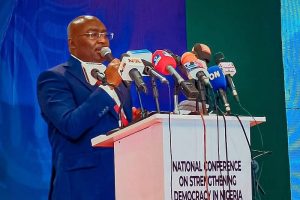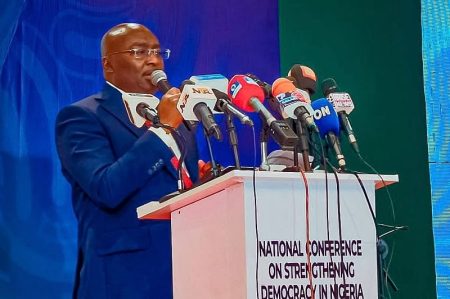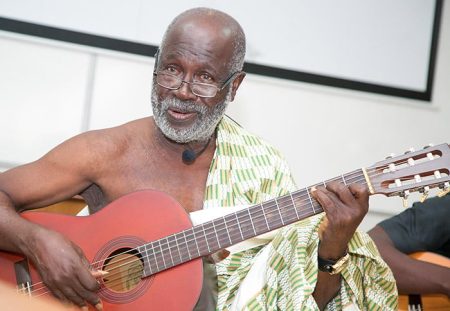The political landscape in Ghana is charged with tension following a directive from Chief of Staff Julius Debrah to annul all public sector appointments and recruitments made after December 7, 2024. This decision, justified by the government as a measure to uphold good governance practices and principles, has sparked controversy and raised concerns about the fairness and implications of such a sweeping move. The timing of the directive, close to the end of the government’s tenure, has fueled speculation about its motivations, with some suggesting it’s a politically calculated move rather than a genuine attempt to improve governance. The affected individuals, many of whom were likely anticipating the start of their public service careers, now face an uncertain future, their hopes and plans abruptly disrupted.
The directive has drawn sharp criticism from the opposition New Patriotic Party (NPP), which views the annulments as an act of political vindictiveness. Akim Swedru MP, Kennedy Nyarko Osei, has publicly denounced the decision, characterizing it as “undemocratic and unconscionable behavior” on the part of the ruling National Democratic Congress (NDC) government. He has accused the NDC of unfairly targeting individuals based on political affiliations, creating a climate of fear and insecurity within the public sector. Mr. Osei Nyarko’s strong condemnation reflects the broader sentiment within the NPP, which sees the directive as a blatant disregard for the rights and aspirations of those affected. This episode further underscores the deep political divisions within Ghana, with both parties engaging in a war of words and accusations.
In a bid to reassure the dismissed public servants, Mr. Osei Nyarko has pledged that the NPP, should they return to power, will reinstate all those affected by the annulments. He further promised full compensation for the period they would have spent unemployed, aiming to mitigate the financial and emotional hardship caused by the unexpected job losses. This promise serves not only as a gesture of support for the affected individuals but also as a political strategy for the NPP, positioning them as the defenders of the public sector workers and highlighting the perceived injustices of the NDC government. By framing the issue as a matter of fairness and justice, the NPP aims to garner public sympathy and support, potentially leveraging the situation to its advantage in future elections.
The NPP’s promise of reinstatement and compensation carries significant political weight, potentially impacting public opinion and influencing voting patterns. It raises questions about the stability and predictability of public sector employment, particularly during periods of political transition. The situation also highlights the vulnerability of public servants to political machinations, with their careers potentially becoming pawns in a larger political game. The affected individuals are left in a precarious position, facing uncertainty about their future and relying on the promises of an opposition party that may or may not come to power.
The Chief of Staff’s directive, while presented as a measure to promote good governance, has been interpreted by many as a politically motivated move. The timing of the directive, so close to the end of the government’s term, raises suspicions about its true intent. Critics argue that if the government was genuinely concerned about good governance, the directive should have been issued much earlier. The perception that the directive is a politically motivated purge has further fueled the already tense political climate, exacerbating distrust and animosity between the ruling party and the opposition.
This controversy underscores the challenges faced by Ghana in ensuring a fair and impartial public service. The politicization of public sector appointments and dismissals undermines the integrity of the system and creates an environment of instability and uncertainty for public servants. The situation calls for a more transparent and accountable system for managing public sector employment, one that safeguards the rights and careers of public servants from political interference. The ongoing debate over the annulments will likely continue to dominate the political discourse in Ghana, with implications for the future of public sector governance and the relationship between politics and the civil service. The fate of the dismissed workers hangs in the balance, dependent on the outcome of future elections and the political will of whichever party assumes power.














